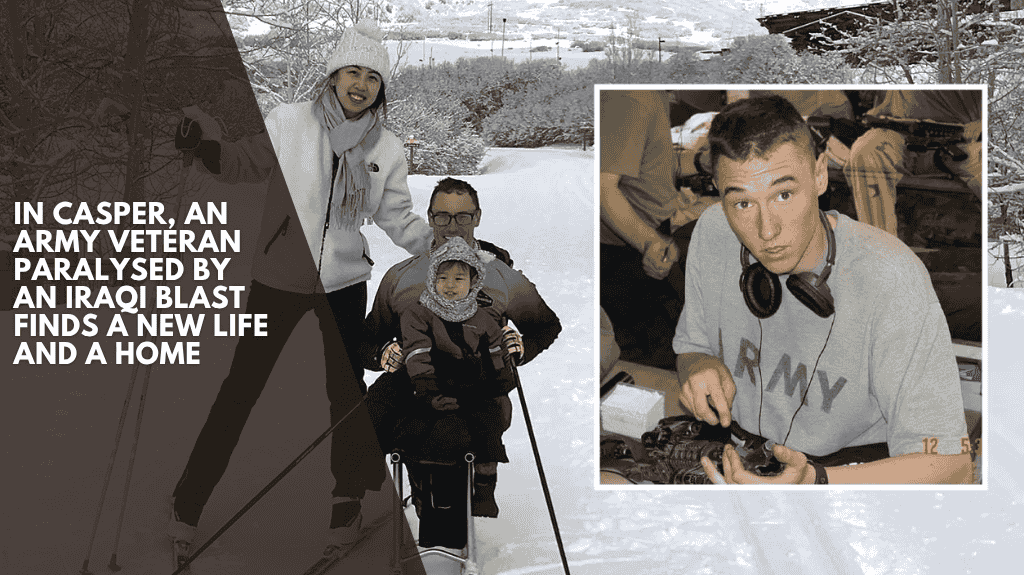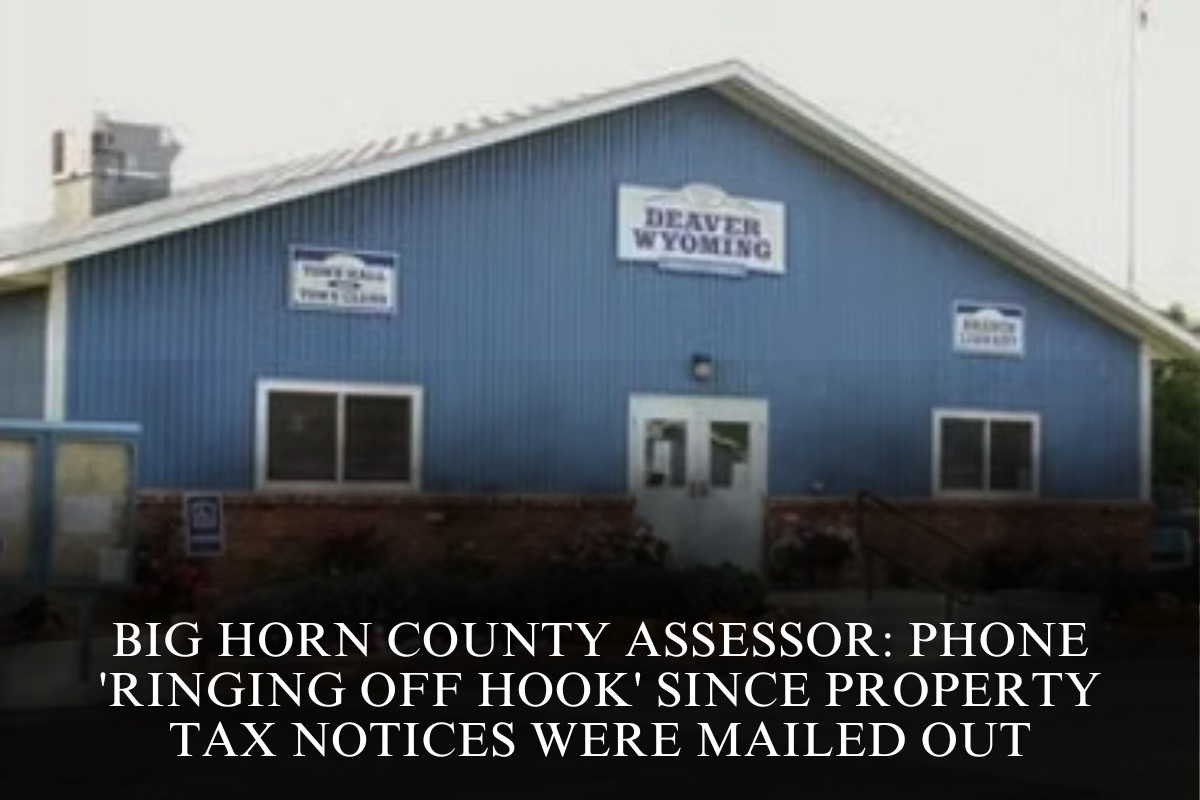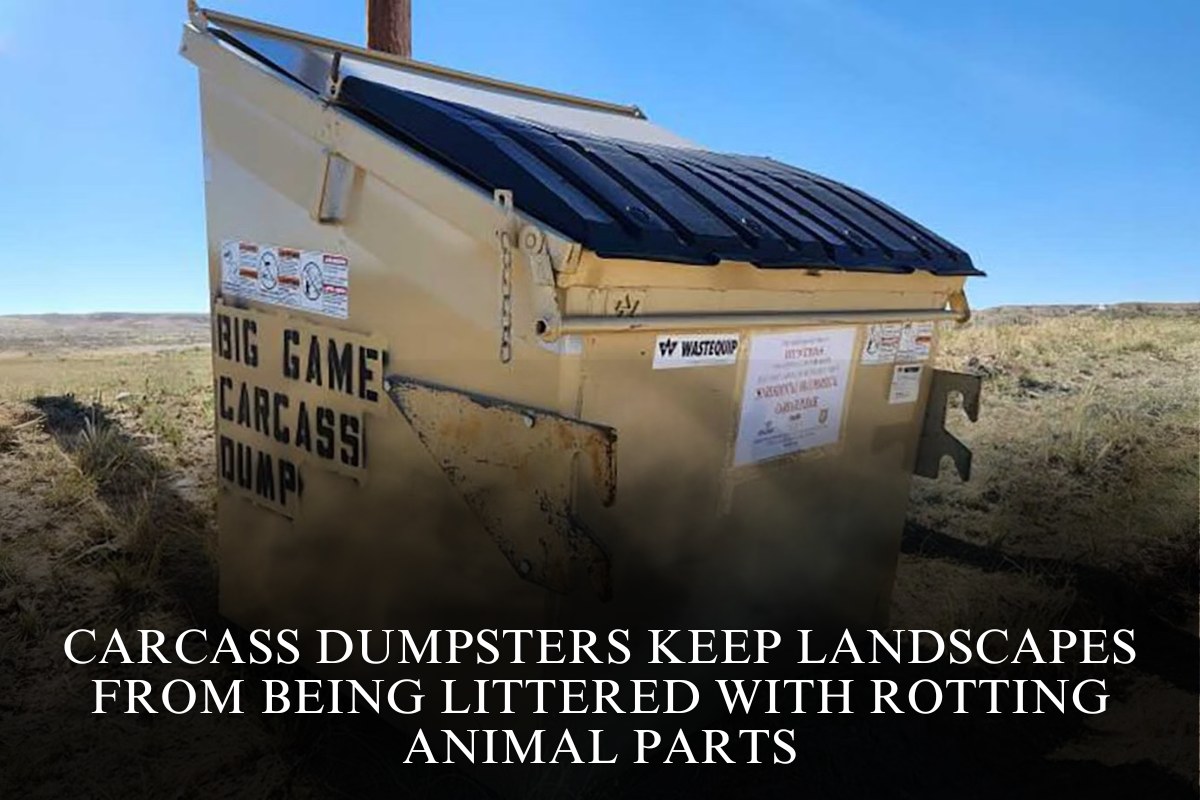CASPER — Bryan Price is known for his endurance. Throughout his 44 years on Earth, he has consistently pushed himself to — and often beyond — his limits.
In high school, he enjoyed cardio sports, and after joining the US Army in 2000, he stated that he would “do road races” for fun.
But Price’s endurance has been tested since 2006, when his Humvee was blown up by an IED while on patrol in Iraq, and he has had to learn to live without the use of his legs.
Now, the Casper resident and former U.S. Paralympic Team Nordic skiing competitor—in Sochi, Russia, in 2014 and Pyeongchang, South Korea, in 2018—has to live in a house with his wife and son that is not wheelchair accessible.
That is about to change.
Homes For Our Troops intends to build him a home in Clark’s Corner, southwest of Casper. A community kickoff event is scheduled for this weekend.
“Two weeks ago, they just put in the foundation,” Price told me.
Price’s journey to qualify for the home began when he decided to join the United States Army as a senior in high school while living on a farm “way out in the middle of nowhere” in Missouri.
“My options as a kid were kind of limited,” he told me. “I can work on farms or in construction. “I didn’t think I had the patience for college, so I decided to join the military.”
‘Triangle Of Death Assignment’
Price trained as a paratrooper and spent most of his Army career in the 82nd Airborne Division, doing a tour of Afghanistan and Iraq as part of that famed division.
In 2006, he was reassigned to the 101st Airborne and returned to Iraq, this time training Iraqi soldiers in the “Triangle of Death.”
According to Price, it is an irrigated farmland region located between Baghdad and Fallujah to the west and Iskandariyah to the south. It was also along the Euphrates River, and weapons entering Iraq would pass through that area.
He stated that he and another US soldier would accompany Iraqi troops on patrol in the Humvees.
The area was identified as a potential IED hotspot.
“Basic travelling was unbelievably dangerous, because there were some places that there would be an IED, like every 50 meters, so it would take just days to go anywhere,” he told me.
On June 16, 2006, he was in the Humvee’s turret on patrol when he noticed the vehicle ahead dip to the left. When the explosion occurred, he bent down and yelled at the driver to stop.
The Humvee lifted from the explosion, and he was sucked down into the vehicle and slammed into a seat.
Dazed, Price stated that he checked to see if he had lost his legs when he noticed his left foot sticking out of the right side of his body and behind him. He explained that it was because he had twisted his legs during the impact.
“And then I immediately took my hand and put it on my back,” he told me. “I was squirting blood out of my back.”
Spinal Cord Injury
Price stated that he had taken a large piece of shrapnel that just barely passed through the bottom side of his body armour, striking his spinal cord. Meanwhile, his fellow soldiers were engaged in a firefight.
He was eventually transferred to Fort Campbell, Kentucky, after undergoing surgery in Germany. He was then moved to a spinal cord unit in Augusta, Georgia.
“I couldn’t feel anything from the belly button down for quite a while after that,” Price told reporters. “After a while, I started feeling something because your spine goes through a shock phase when it receives a large impact.
“And so I started getting a little bit of feeling here and there, like I can feel all the way down to my hips now, and I can feel portions of my right leg, a little bit of my left leg.”
After his treatment, Price was released from the Army as a staff sergeant.
Back in Missouri, he got involved in wheelchair sports like softball and basketball, and someone mentioned the National Veterans Wheelchair Games.
Price went, and while there, he met a coach from Team USA’s Paralympic biathlon and ski teams who was recruiting athletes.
Price stated that he excelled in one of the events, and the coach handed him his card and told him about biathlon. Biathlon combines cross-country skiing and precision shooting.
“I had no idea what it was because I was from Missouri,” said the man. “I started doing that after that, after he invited me to try it.”
New opportunity
Price had never skied or used a “sit-ski” before meeting the coach, who lived in Casper. Price attended a camp in California where Paralympic veterans practiced on sit-skis with wheels.
Price purchased all of the necessary equipment for the sport and trained extensively on a ski machine in his garage.
That winter, he went to Casper and tried snow skiing.
The coach began inviting him to veterans’ events, including cross-country skiing and biathlon competitions. At the events, the coach was also looking for Team USA athletes who could train for international competition.
Price then began racing in 2012, earning an invitation to a national cross-country skiing competition.
“I didn’t even know I was that fast,” he told me. “(That’s) because I was mostly racing against people with legs that were functional all the time.”
After a race at the national competition, Price stated that he was approached by a program director who informed him that he was going to buy Price a ticket to the World Cup competition in Germany the following week. Paralympic athletes needed to qualify through a World Cup competition.
Olympic Qualifier
He went and qualified for the 2014 Sochi, Russia, games in cross-country skiing.
He stated that he was also competing in biathlon at the time, but did not qualify because he did not have his own rifle and was unable to train to the required standard.
Price relocated to Casper to train and coach. He has helped train members of the Wyoming National Guard biathlon team.
Price qualified for the 2018 Paralympics in South Korea, competing in cross-country skiing and biathlon, respectively.
Price stated that his competing and coaching days are now behind him. He “blew out” a shoulder, forcing him to withdraw from competition, and he has realised that he needs to stay at home to help his wife with their 5-year-old autistic son.
New Home
Price said that after a few years in Casper, he knew he wanted to live there.
In his current home, attempting to assist in the kitchen, do laundry, and perform other household tasks is impossible.
He admits that being the father he aspires to is difficult.
He remembered hearing about Home For Our Troops and contacted them, and his application was approved.
The nonprofit is supported by donations, private and family foundations, and community fundraisers.
Price stated that his project will include a volunteer day and a special key ceremony once the home is finished.
“I’ve never lived in a handicap-accessible place before,” he told me. “So that would be hugely beneficial to me.”
Looking back on how the Humvee mission in June 2006 changed his life, Price, who was awarded the Purple Heart, has no regrets.
“I don’t actually mind being in a chair,” he told me. “I loved serving in the military. I was upset when the military refused to let me stay, but I’ve had so many opportunities to do other things since getting hurt.”












